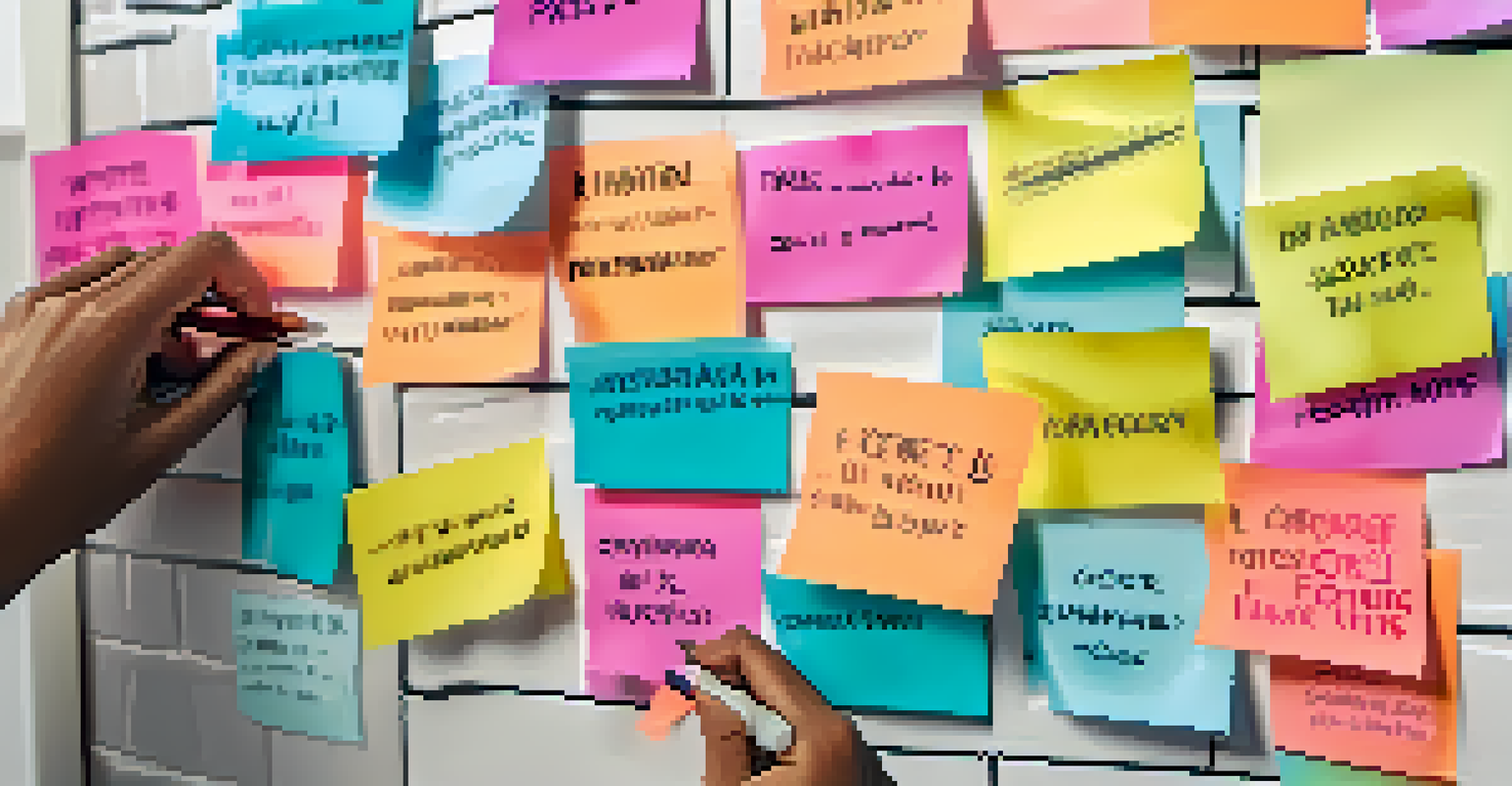How to Handle Job Interview Anxiety Effectively

Understanding Job Interview Anxiety and Its Causes
Job interview anxiety is a common experience that many candidates face. It can stem from fear of judgment, the pressure to perform, or uncertainty about the future. Understanding the root causes can help demystify these feelings and make them more manageable.
Success is not the key to happiness. Happiness is the key to success. If you love what you are doing, you will be successful.
For instance, if you find that your anxiety peaks during the moments before an interview, it could be a sign that you're placing too much pressure on yourself to succeed. Recognizing this can empower you to shift your mindset, focusing on the opportunity rather than the outcome.
Additionally, discussing these feelings with friends or mentors can provide perspective. They might share their own stories of anxiety, helping you realize that you're not alone in this experience.
Preparation: The Key to Reducing Interview Anxiety
Preparation is one of the most effective ways to combat anxiety. By thoroughly researching the company and the role, you can enter the interview feeling informed and confident. This knowledge not only boosts your self-esteem but also equips you to answer questions more effectively.

Moreover, practicing common interview questions with a friend or in front of a mirror can help you become comfortable with your responses. The more you rehearse, the more natural your answers will feel, making it easier to handle unexpected questions.
Understanding Interview Anxiety
Job interview anxiety is a common experience rooted in fear of judgment and performance pressure.
Finally, preparing your own questions for the interviewer can shift the focus from your performance to a more engaging conversation. This interaction can help alleviate some of the pressure, allowing you to be more present during the interview.
Mindfulness Techniques to Calm Your Nerves
Incorporating mindfulness techniques into your routine can significantly reduce anxiety. Simple practices such as deep breathing or meditation can help center your thoughts and calm your mind before an interview. For example, taking a few deep breaths can slow your heart rate and help you feel more grounded.
The only limit to our realization of tomorrow will be our doubts of today.
Visualizing a successful interview can also be a powerful tool. Imagine yourself walking into the room confidently, answering questions with poise, and leaving with a smile. This positive visualization can help set the tone for a successful experience.
Lastly, consider using mindfulness apps or guided meditations specifically designed to alleviate anxiety. These resources can provide structured support as you prepare for your big day.
The Power of Positive Affirmations
Positive affirmations can be a game-changer when it comes to managing anxiety. These are simple, encouraging statements that you can repeat to yourself to build confidence. For instance, phrases like 'I am capable' or 'I have prepared for this moment' can help reshape your mindset.
Integrating these affirmations into your daily routine can reinforce your belief in your abilities. You might write them on sticky notes and place them where you’ll see them frequently, such as on your bathroom mirror or your workspace.
Preparation Reduces Anxiety
Thorough preparation, including research and practice, boosts confidence and helps manage interview nerves.
Over time, these affirmations can help shift your internal dialogue from negative to positive, making it easier to approach interviews with a healthy mindset.
Effective Breathing Techniques to Reduce Anxiety
Breathing techniques are simple yet powerful tools for managing anxiety. One effective method is the 4-7-8 breathing technique, where you inhale for four seconds, hold your breath for seven seconds, and exhale for eight seconds. This practice can help calm your nervous system and reduce feelings of anxiousness.
Another technique is diaphragmatic breathing, which encourages full oxygen exchange and can promote relaxation. By focusing on deep, slow breaths, you can help alleviate the physical symptoms of anxiety, such as a racing heart or shallow breathing.
Incorporating these techniques into your pre-interview routine can create a sense of calm, making it easier to approach the interview with a clear mind.
Reframing Negative Thoughts About Interviews
Reframing negative thoughts is an essential skill when dealing with interview anxiety. Instead of viewing the interview as a high-stakes event, try to see it as a conversation where both parties are assessing fit. This perspective shift can reduce pressure and make the experience feel more natural.
For example, if you find yourself thinking, 'What if I mess up?', reframe that thought to 'I have the opportunity to learn and grow from this experience.' This subtle change in language can dramatically affect your outlook and performance.
Positive Mindset Techniques
Using positive affirmations and mindfulness techniques can significantly calm nerves and improve interview performance.
Journaling your thoughts can be a helpful exercise in this process. By writing down your worries, you can analyze and reframe them, transforming anxiety into a more constructive mindset.
Post-Interview Reflection for Growth and Learning
After the interview, it's important to reflect on your experience. Take note of what went well and what you found challenging. This reflection not only helps you learn from the experience but also prepares you for future interviews.
Consider keeping a journal specifically for your interview experiences. Documenting your thoughts and feelings can help you identify patterns in your anxiety and develop strategies to address them in the future.

Lastly, remember to celebrate your efforts, regardless of the outcome. Each interview is a step toward your career goals, and recognizing your courage to face the process can foster resilience and confidence.